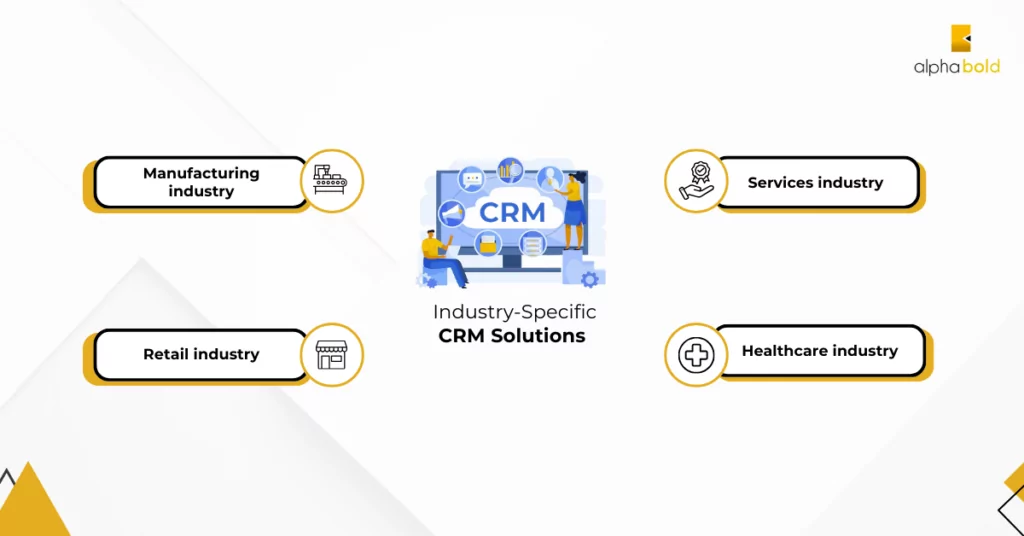Introduction
Customer Relationship Management (CRM) is more than just a software addition to your business arsenal; it’s the core of your customer engagement strategy. In today’s market, where customer expectations are at an all-time high and competition is relentless, a robust CRM system is essential to keep customers satisfied and loyal. The key is offering each customer an experience uniquely tailored to them.
Now, imagine a CRM that’s not just powerful but also as flexible as your business needs it to be. Think of it as the multi-tool in your business’s toolkit, versatile enough to cater to a range of needs from sales and customer service to marketing, all unified in one comprehensive platform. Dynamics 365 doesn’t just integrate with your business processes; it elevates them, providing a complete view of the customer journey.
The real game-changer, however, lies in Dynamics 365’s adaptability to different industries. Recognizing that every industry has its own specific challenges and requirements, Dynamics 365 is designed to be flexible and customizable. Whether your business is involved in manufacturing, retail, healthcare, software development, or service delivery, Dynamics 365 can be fine-tuned to resonate with the unique rhythm of your industry. This means having access to features and tools that are relevant and valuable to your specific business context, not just a generic set of functions.
This blog post is crafted with you, the decision-makers and industry leaders, in mind. Those tasked with the critical responsibility of choosing and implementing the right CRM solution for their organizations. We delve into how Microsoft Dynamics 365, as a versatile and adaptable CRM platform, can be specifically tailored to meet the diverse needs of different industries. Our goal is to guide you through the distinctive features and advantages that Dynamics 365 offers for each sector. We aim to demonstrate how selecting the right CRM software goes beyond basic business functionality; it’s about choosing a strategic asset that seamlessly integrates with and enhances your industry-specific operations and objectives.

CRM for Manufacturing: Overcoming Industry Challenges
With its intricate web of operations, supply chain logistics, and customer relationships, the manufacturing industry demands a CRM that’s as robust and dynamic as its processes. In this section, we explore the essential functionalities a CRM must possess to elevate a manufacturing business, delve into the specific features of Dynamics 365 that cater to these needs, and share a success story that illustrates the transformative power of Dynamics 365 in the manufacturing sector.
Essential CRM Functionalities for Manufacturing
The manufacturing industry presents unique challenges that require specific CRM functionalities to manage its complex operations efficiently. Dynamics 365, with its suite of applications including Dynamics 365 Sales, Dynamics 365 Customer Service, Dynamics 365 Field Service, and Dynamics 365 Marketing, addresses these needs effectively. Here, we outline the critical CRM requirements for the manufacturing industry and how Dynamics 365 fulfills them.
Streamlining Manufacturing Sales Processes
- Effective Lead and Opportunity Management: Manufacturers need robust systems to track sales leads and opportunities, ensuring no potential customer is missed.
- Accurate Sales Forecasting: Predicting sales trends is crucial for planning production and managing inventory.
- In-depth Relationship Analytics: Understanding customer interactions is key to building stronger relationships and enhancing sales strategies.
Enhancing Manufacturer- Customer Interactions
- Streamlined Customer Support: A platform that efficiently handles customer inquiries and issues is essential for maintaining high satisfaction levels.
- Actionable Service Insights: Leveraging AI to analyze service patterns and feedback helps manufacturers refine their customer service continuously.
- Consistent Omnichannel Engagement: Seamlessly engaging customers across various platforms is crucial for a cohesive service experience.
Read how AlphaBOLD helped JWC environmental, a waste shredder manufacturing company, implement Dynamics 365 to enhance the overall productivity of JWC call center technicians.
Optimizing Manufacturing Field Operations
- Effective Service Scheduling and Dispatch: Manufacturers require efficient management of field service schedules for timely service delivery.
- Resource Optimization: Utilizing resources in the field efficiently is vital to reduce costs and enhance service quality.
- Empowered Mobile Workforce: Providing field technicians with the right tools and data is essential for improving responsiveness and effectiveness.
Driving Targeted Marketing in Manufacturing
- Customizable Marketing Campaigns: The ability to create personalized marketing campaigns that resonate with the manufacturing sector’s audience.
- Insightful Customer Analytics and Segmentation: Gaining deep insights into customer behavior for precise marketing segmentation and strategy development.
- Efficient Event Management and Automation: Tools for planning and executing marketing events efficiently, with the ability to track their effectiveness.
In summary, the manufacturing industry’s CRM needs are multifaceted, encompassing efficient sales processes, excellent customer service, optimized field operations, and targeted marketing strategies. Dynamics 365 provides a comprehensive solution that addresses these needs, ensuring competitors can operate efficiently and competently in their market.
Transform Your Manufacturing Business: Schedule a Demo
Ready to see how Dynamics 365 Customer Engagement can revolutionize your manufacturing operations? Contact us today to schedule a personalized demo and witness firsthand the transformative power of a CRM tailored to your industry's unique needs.
Request a DemoCRM for the Retail Industry: Meeting Unique Requirements
The retail industry operates in a dynamic and customer-focused environment, where managing relationships and streamlining operations are critical for success. A CRM in the retail sector must cater to specific needs that are unique to this industry. This section outlines the key requirements of CRM software in the retail industry, emphasizing the crucial functionalities for enhancing customer experiences and operational efficiency.
Comprehensive Customer Data Management
- 360-Degree Customer View: Retailers need a CRM system that consolidates data from various touchpoints to provide a complete view of each customer.
- Personalization and Customer Profiling: The ability to create detailed customer profiles is essential for tailoring interactions and offering personalized shopping experiences.
Read more: Dynamics 365’S Robust Data Management
Omnichannel Integration
- Consistent Omnichannel Experience: A CRM must integrate seamlessly across online and physical stores, ensuring uniformity in customer experience across all platforms.
- Streamlined Order Management: The system should efficiently manage and synchronize orders from different channels, enhancing operational flow and customer satisfaction
Advanced Analytics for Strategic Decisions
- Inventory and Demand Forecasting: Predictive analytics are vital for managing inventory levels effectively, predicting demand, and avoiding stock issues.
- Sales and Trend Analysis: Retailers require insights into sales patterns and customer preferences to inform product placement, promotions, and marketing strategies.
Targeted Marketing and Loyalty Programs
- Effective Marketing Campaign Tools: CRM software should facilitate creating and managing targeted marketing campaigns to engage and attract customers.
- Loyalty Program Integration: Managing and optimizing customer loyalty programs is key to building long-term relationships and encouraging repeat business.
Real-Time Reporting and Business Insights
- Dynamic Reporting Capabilities: Retailers need immediate access to sales performance, customer feedback, and operational efficiency metrics.
- Actionable Business Insights: The CRM should offer actionable intelligence to help refine strategies and foster business growth.
Read more: Transforming Data Into Insights: Reporting And Analytics In Dynamics 365 For Marketing.
CRM Essentials for the Healthcare Industry
In the healthcare industry, where patient care and data management are of utmost importance, the role of CRM is critical. A CRM system in the healthcare sector must address unique requirements to enhance patient experiences, ensure regulatory compliance, and improve operational efficiency. This section outlines the key functionalities a CRM must possess to meet the specific needs of the healthcare industry.
Comprehensive Patient Data Management
- 360-Degree Patient View: A healthcare CRM must provide a holistic view of patient information, integrating data from various sources for complete patient profiles.
- Sensitive Data Handling: Given the nature of healthcare data, the CRM must ensure high data security and confidentiality standards.
Patient Engagement and Care Coordination
- Enhanced Patient Communication: The system should facilitate seamless patient communication, including appointment reminders, health tips, and follow-up care instructions.
- Care Coordination Tools: Efficient coordination between different healthcare providers and departments is essential for optimal patient care.
Compliance and Reporting
- Regulatory Compliance: The CRM must adhere to healthcare regulations like HIPAA in the U.S., ensuring that patient data is managed promptly.
- Customizable Reporting: The ability to generate customizable reports is vital for meeting various regulatory and internal reporting requirements.
Integration with Healthcare Systems
- Electronic Health Record (EHR) Integration: Seamless integration with EHR systems is crucial for updating and accessing patient information in real-time.
- Interoperability with Medical Devices: The CRM should be capable of integrating with various medical devices and systems for comprehensive patient data management.
Patient Outreach and Education
- Health Promotion Campaigns: The CRM should enable healthcare providers to create and manage health promotion campaigns, educating patients about preventive care and healthy practices.
- Feedback and Satisfaction Surveys: Tools for gathering patient feedback and measuring satisfaction are essential for improving healthcare services.
Operational Efficiency and Analytics
- Resource Management Tools: Efficient management of healthcare resources, including staff and equipment, is critical for smooth operations.
- Data Analytics for Patient Care Optimization: The use of analytics to understand patient trends, treatment outcomes, and operational efficiency can significantly improve the quality of care.
In summary, the healthcare industry requires a CRM that offers comprehensive patient data management, enhanced patient engagement, strict compliance adherence, effective integration with healthcare systems, patient education capabilities, and operational analytics. These features enable healthcare providers to deliver high-quality care, manage patient information securely, and streamline their operations, ultimately contributing to better patient outcomes and healthcare efficiency.
CRM Essentials for the Services Industry
The services industry, focusing on client relationships and service delivery excellence, demands a CRM that can adeptly handle unique challenges. A CRM in this sector must facilitate exceptional client management, efficient service delivery, and robust performance tracking. This section outlines the key CRM functionalities that are essential for meeting the specific needs of the services industry.
In-Depth Client Relationship Management
- Comprehensive Client Profiles: A CRM must provide detailed client profiles, capturing all interactions, preferences, and history to enable personalized service.
- Client Communication Tools: Efficient communication tools are essential for maintaining ongoing engagement and promptly addressing client inquiries or concerns.
Service Delivery and Project Management
- Project Management Integration: Integration with project management tools is vital for tracking service delivery, deadlines, and client deliverables.
- Service Customization Capabilities: The CRM should allow for the customization of services based on client needs and preferences.
Performance Tracking and Analytics
- Service Performance Metrics: The system needs to provide insights into service delivery metrics, client satisfaction levels, and employee performance.
- Data-Driven Decision Making: Analytics tools are crucial for making informed decisions based on client feedback, service quality, and business performance.
Client Feedback and Experience Enhancement
- Feedback Collection and Management: Mechanisms for collecting and managing client feedback are necessary for continuous improvement and client retention.
- Experience Enhancement Strategies: Tools to analyze and implement strategies for enhancing the overall client experience.
Business Development and Marketing
- Lead Management and Conversion: A CRM should assist in managing potential leads, tracking interactions, and facilitating the conversion process.
- Targeted Marketing Initiatives: The ability to develop and execute targeted marketing campaigns based on client data and industry trends.
Integration with Other Business Systems
- Seamless Integration with Business Tools: Integration with financial, HR, and other operational systems is essential for a holistic view of the business.
- Mobile Access for On-the-Go Service Management: Mobile CRM access is crucial for service professionals managing client relationships and services remotely.
In summary, the services industry requires a CRM that offers comprehensive client relationship management, efficient service delivery and project management, performance tracking, client feedback management, targeted marketing capabilities, and seamless integration with other business systems. These functionalities ensure that service providers can offer personalized, high-quality services, maintain strong client relationships, and achieve operational efficiency and business growth.
Further Reading: The Comprehensive Guide to CRM Software Selection
Transform Your Business: Schedule a Demo
Are you ready to see how Dynamics 365 Customer Engagement can revolutionize your business? Contact us today to schedule a personalized demo and witness firsthand the transformative power of a CRM tailored to your industry's unique needs.
Request a DemoConclusion: Embracing the Dynamics 365 CRM Advantage for Your Industry
As we’ve explored throughout this blog post, choosing the right CRM solution is a critical decision for businesses across various industries. Each sector, be it manufacturing, retail, healthcare, or services, presents its own set of unique challenges and requirements. The one-size-fits-all approach to CRM is no longer viable in this age of specialized needs and customer expectations. This is where the versatility and adaptability of Dynamics 365 come into play, offering a significant edge in meeting industry-specific demands.
Dynamics 365 stands out as a multi-industry CRM solution designed to cater to the unique needs of different sectors. Its comprehensive suite of applications and tools allows businesses to choose and customize functionalities that align precisely with their industry requirements. From managing intricate supply chains in manufacturing to enhancing patient care in healthcare, Dynamics 365 offers targeted solutions to optimize operations, improve customer relationships, and drive growth.
For retailers, Dynamics 365 brings a seamless omnichannel experience and advanced analytics to understand customer behavior better. It offers robust client relationship management and project tracking tools for service industries. The platform’s ability to integrate with existing systems and provide real-time insights makes it an invaluable asset for any industry.
Selecting Dynamics 365 as your CRM solution is more than just a technological upgrade; it’s a strategic move towards operational excellence and enhanced customer engagement. With its industry-specific capabilities, Dynamics 365 empowers businesses to address their unique challenges effectively and harness the full potential of their customer relationships.
We invite you to explore how Dynamics 365 can transform your business. Whether you’re looking to streamline manufacturing processes, elevate retail experiences, improve healthcare services, or enhance client management in the services sector, Dynamics 365 has the tools and insights you need. Embrace the Dynamics 365 edge and tailor a CRM solution that fits your industry and is customized for your specific business needs.
Explore Recent Blog Posts








